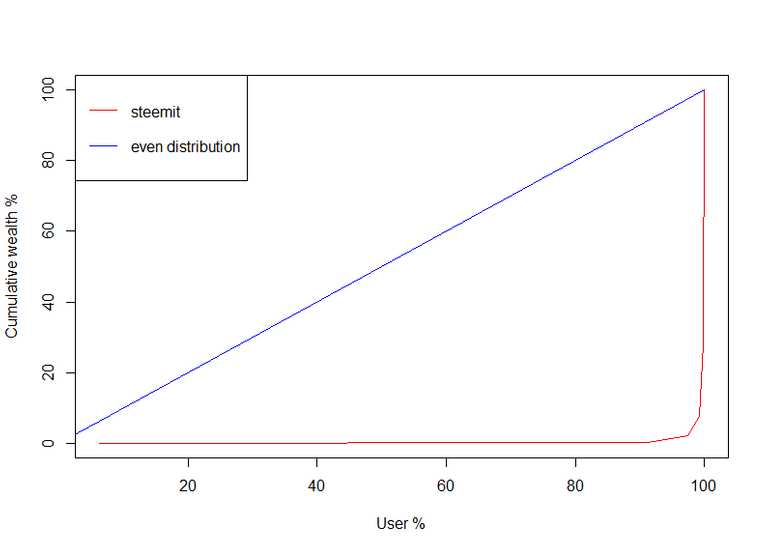You are a minnow, shark or whale. There has been much discussion in recent posts on steemit.
Votes matter here, but default clicks go to "trending" where $$$ dominates.
To see the distribution of "trending power" better, I calculated the Gini coefficient from steemd.com/distribution. It is ...
0.988
Visually, it looks like this:

But, since the graph shows individual investment and not earnings, the Gini coefficient won't be useful as a comparison to, say, the U.S. (0.41 in 2013) or Ukraine (0.24 in 2013). Also, because of incentives to joining steem, we expect to see a long tail of minnows. It would be interesting to compare against other social media giants (their zero-value minnow list is the whole user base!)
The problem is with this inequality, the disparity between number of votes received (popular) and $SD (trending) will lead to high variance in $SD earned, making the site less reliable as a source of income from dedicated posters. Defaulting the home page to "trending" instead of "popular" or "hot" does lure posters looking to make money but is a tradeoff with what the users want to see.
Conclusion: switch to "popular" "new" and "hot"!
* Some previous discussion of the reward system: https://steemit.com/steemit/@steemitblog/overhaul-of-curation-rewards
Reference: Gini calculation
agree with your post, probably it is the big pending to solve issue of this project, of course some unequality is normal and of course that early adopters have some advantage but....please we need some limits
I think the key will be to modify the SP to have polynomial or even logarithmic decay.
Thank you for answering the question! How to fatten the belly?
Slurpees not only on 7/11?